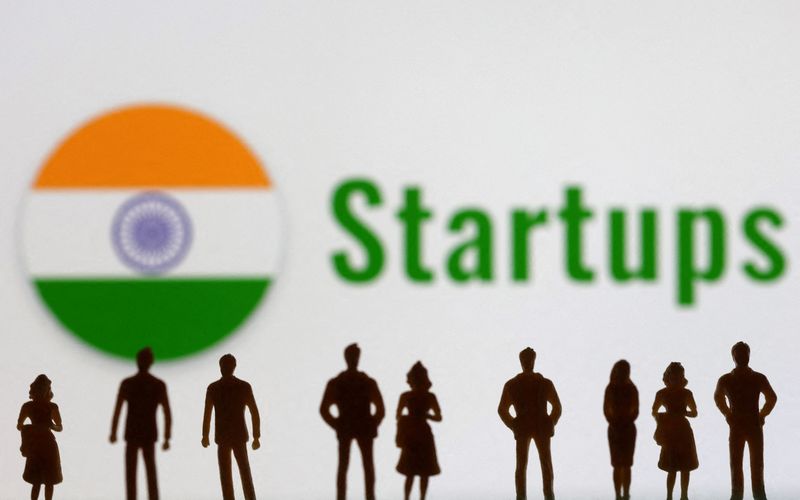By Ashwin Manikandan and Haripriya Suresh
BENGALURU (Reuters) - India's scrapping of a time-consuming compliance step will accelerate the pace at which Indian startups domiciled abroad shift back home to participate in the country's listing boom, according to bankers, lawyers and investors.
Since last month, foreign-based companies no longer require approval from the backlogged National Company Law Tribunal for a so-called "reverse flip" merger with a domestic subsidiary, effectively reducing the time the process takes to about three to four months from at least 12 to 18 months previously.
Many of the dozens of Indian startups that once chose to be based abroad for better access to capital and smaller tax bills are now queuing to return home from financial hubs such as the U.S. and Singapore due to better initial public offering prospects in a country that does not allow dual listings.
While Razorpay, Pine Labs and KreditBee are in advanced stages of completing the reverse flip, Zepto, Eruditus and InMobi are also trying to finish the merger process in the coming months in preparation for eventual IPOs, multiple sources said.
The sources spoke on condition of anonymity because they were not authorised to speak publicly.
"India is a home market and a place where everybody knows and understands us. From a listing perspective, it makes sense to be in India," said Harshil Mathur, the co-founder and CEO of Razorpay.
The U.S.-domiciled online payments firm was valued at $7.5 billion as of its last fundraising in December 2021 and is looking to shift to India.
IPOs in India including by startups Ola Electric and FirstCry have raised $9.17 billion in the first nine months of this year, up from $4.68 billion in the same period last year, according to LSEG data, making the country a rare bright spot for equity capital raising by companies in the Asia-Pacific region.
"With the IPO market thriving, a reverse flip makes sense. Moreover, the streamlined merger process, designed to facilitate swift and efficient scheme approvals without court intervention, further supports this strategic move," said Mehul Shah, a partner at corporate law firm Khaitan & Co.
Before the rule change, only a handful of companies such as Walmart-backed digital payments firm PhonePe and online investment platform Groww had engineered a reverse flip.
Those processes concluded in October 2022 and March 2024 respectively, though the timing of their India IPO plans remains unclear.
PhonePe had to pay about $1 billion in capital gains taxes to the Indian government to complete the reverse flip, something that its co-founder and CEO Sameer Nigam once termed as a "very stiff shock".
Groww took "several years to finish the process", an executive said on condition of anonymity.
The startups did not respond to requests seeking comment.
"Even without this regulation, last we saw eight to 10 new-age companies were on the path to reverse flip. So, this will encourage (even more of them to follow suit)," Gaurav Sood, head of equity capital markets at investment bank Avendus, said of the rule change.
IN INDIA WE TRUST
The homecoming of the IPO-bound startups is understandable given India's requirement that only local companies list on its exchanges and its ban on dual listings, along with a thin track record of such companies listing overseas.
Moreover, India's central bank and other regulators prefer local firms over their foreign counterparts for key operational licenses such as those required by fintechs, according to industry sources.
Stricter government scrutiny of foreign inflows and business deals have also raised compliance risks for startups, the sources said.
The Reserve Bank of India and India's market regulator did not respond to requests seeking comment.
An IPO in India also offers startup investors a potentially more lucrative exit avenue.
"There is a strong appetite for tech stocks among Indian public investors, retail investors included," said Sandeep Patil, partner, and Asia head at venture capital firm QED Investors.
But while India has eased reverse flipping norms, it is unlikely to unveil related capital gains tax concessions.
India's Commerce Minister Piyush Goyal told the Economic Times in March the Indian startups shifting back home would have
to pay taxes.

"Why they want to come back is not an altruistic motive. They want to list in India because here's where you get the valuations," Goyal said.
His office did not respond to Reuters' requests for fresh comment.